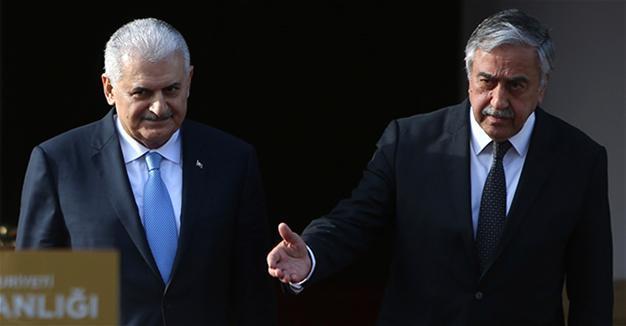EU opposes peace deal giving Turks key rights
NICOSIA - Agence France-Presse

AP photo
European Union member states have rejected Turkey’s demand that its citizens be granted the freedom to relocate and transfer money, services and goods to EU member Greek Cyprus under any deal reunifying the divided island, the Greek Cypriot president said March 11.
Nicos Anastasiades said all EU leaders consider it a “bad precedent” for Cyprus or any other country to breach bloc rules and grant such key freedoms to third-country citizens.
“This matter concerns the whole of the European Union, not just Cyprus,” Anastasiades said.
Turkey said in January that any Cyprus peace deal should incorporate such a condition. But Greek Cypriot officials fear such a development would enable Turkey to overwhelm the small island of 1.1 million people economically, demographically or otherwise.
Cyprus was split along ethnic lines in 1974 when Turkey intervened following a coup by supporters of uniting Cyprus with Greece. Although the island joined the EU in 2004, only the internationally recognized south enjoys full membership benefits. A Turkish Cypriot declaration of independence is recognized only by Turkey.
Turkey’s demand further complicated difficult negotiations that stalled last month amid Turkish Cypriot anger over legislation to commemorate in Greek Cypriot schools a 1950 referendum calling for Cyprus’ union with Greece.
Turkish Cypriots see a drive by the majority Greek Cypriots for union with Greece that began before Cyprus gained independence from British colonial rule in 1960 as the root of all the island’s problems. Turkish Cypriot President Mustafa Akıncı and top Turkish officials have said that Greek Cypriots needed to fix this “mistake” if talks are to move forward.
Anastasiades said the “aimless” legislation in no way suggested any policy shift away from reunifying Cyprus as a federation. He criticized Akıncı for using the matter as an “excuse” to walk out of the 22 months-long peace talks.
Anastasiades attributed Akinci’s actions to the Turkish government’s hardening stance before the country’s April 16 referendum on expanding presidential powers.
Cyprus government spokesman Nicos Christodoulides said that EU leaders have conveyed the belief that any movement in Cyprus peace talks won’t happen before the Turkish referendum is completed.
